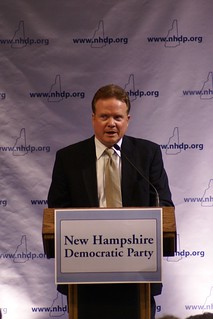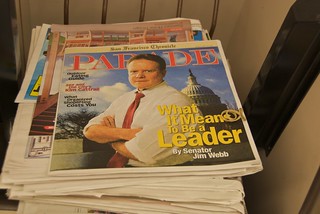Video: This Interview of UVA Associate Dean of Students Nicole Eramo is Deeply Disturbing
There’s something seriously wrong, even disturbing, about this interview, and more importantly what it says about the culture regarding sexual assault at UVA.
In an interview taped weeks before the sexual assault scandal that rocked the University of Virginia campus was exposed in Rolling Stone, a school official repeatedly defended a system in which students found guilty — including students who have admitted guilt — have been suspended rather than expelled.
Associate Dean of Students Nicole Eramo, who is also head of the university’s Sexual Misconduct Board, told a reporter from student-run WUVA Online that she spoke to 38 sexual assault survivors last year. Of those, five filed informal complaints while four filed formal complaints.
Eramo said some accused students have admitted to sexual assault during the informal proceedings, but that those students were not expelled.
Eramo said that in most cases, suspensions run 1-2 years, with the longest being 2 years. She said that while expulsion is a a possible punishment, it has not been used in a sexual assault case during her time at the university.
I mean, frankly, I’m almost speechless here; this is wrong on so many levels I don’t even know where to start. Instead, let me just quote a few of the many scathing, articulate comments on the WUVA Media Vimeo page, where you can also watch the full interview.
*”… why do we place Deans like this, who fail to take the path less traveled and fight for what’s right, in positions of power and do nothing when their failures are presented to the student body and the world?”
*”The most shocking answer to me was the response that ‘Lots of victims don’t want their assailant to get in trouble’ or ‘Lots of victims don’t want to lodge a complaint’. Anyone who has worked with domestic violence knows that this is exactly the pattern that many victims of abuse exhibit w.r.t their abusers. So to hear this coming from someone who has apparently worked with battered women is downright jaw-dropping.”
*”I kept waiting for Eramo to say ‘Rape is Wrong’ or ‘Rapists have no place in our community’ or ‘Rapists should be prosecuted.’ There was no moral standard in her thinking – she has been programmed to run a tightly controlled and manipulated process that, above all, protects UVAs reputation.
This video is clear evidence that UVA – and probably all Universities – should not be managing their own rape and sexual assault cases. Perhaps it’s just me – but even the term ‘sexual misconduct’ minimizes the whole issue. Perhaps they need a committee on “life ending circumstances” to handle murders?”
*”Shocking … I think we can see the root of the problem. I think she needs to be expelled. Her line of logic is terribly offensive.”
*”If this isn’t proof that the whole system is messed up I don’t know what is. The woman who heads all of these cases doesn’t even believe that rapists should be expelled from the university. Who is Eramo protecting? Not rape survivors. She is protecting the university and that is not unusual.”
*”The discussion around the 12 minute mark is mind blowing…. How on earth can you take a stand that because a student rapist admits their guilt they deserve to stay in school??”
*”Wow, I am literally sick to my stomach after watching this. As a victim and a victim’s advocate, who now studies forensic psychology, I can tell you that Dean Eramo is EXPLOITING victims’ shame and confusion to the benefit of the university.”
*”Wow, so she thinks that the rights of an ADMITTED rapist should be equally considered with the victim’s?”
*”What a sad thing to watch. Dean Eramo doesn’t even know what she doesn’t know. Not only that, I’m sure she has no understanding of how silly she sounded. Does she understand the absurdity of expulsion for cheating on a test and a suspension for rape and sexual assault? They train people for two days? You’ve got to be kidding! And how does she feel when the university turns the rapist loose on the wider world during a suspension? Not my problem any more, right? Let’s see… rape and sexual assault are, at least the last time I checked, among the most serious crimes an individual can perpetrate.”
*”Amazing to see how Eramo’s tone changes from a cooperative “let-me-teach-you-everything-I-know” at the start when the reporter’s questions aim to establish her credibility, to the rude, impatient, condescending and self-important attitude that she exhibits once the questions get a little tough. I can only imagine how this might be replicated when victims seek her advice. If this woman can’t handle a reporter in a professional manner, how can we trust her to handle situations which require infinitely more patience, empathy and intelligence?”
*”Even though Dean Eramo seems to think that she offers victims a choice in how they proceed with an assault case, it is clear based on the sheer environment in this room that they are severely dissuaded from doing so.”
*”This woman does not seem suitable or fit for this position. These are criminal cases that should be decided by a (hopefully) objective court system. Should not be left in the hands of a school that will benefit from it being swept under the rug and handled like a schoolyard fight.This is despicable.”

 A week after Election Day 2014, GMU held its usual
A week after Election Day 2014, GMU held its usual 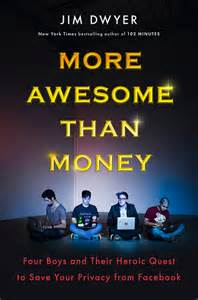 I just finished reading the fascinating new book
I just finished reading the fascinating new book  Question #14: What does the Diaspora experience tell us, if anything, about people’s need to make a profit vs. the desire to create something socially beneficial.
Question #14: What does the Diaspora experience tell us, if anything, about people’s need to make a profit vs. the desire to create something socially beneficial.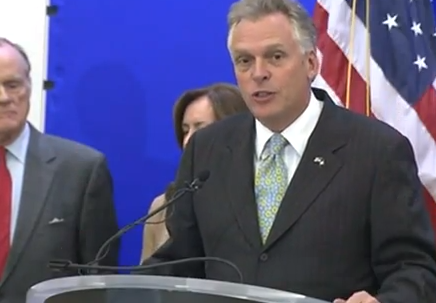
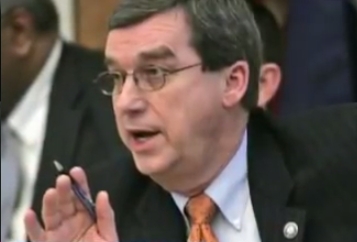 Superb job by
Superb job by  Here are a few national and Virginia news headlines, political and otherwise, for Sunday, November 23. Also, the photo of an anti-rape protest at UVA yesterday is by
Here are a few national and Virginia news headlines, political and otherwise, for Sunday, November 23. Also, the photo of an anti-rape protest at UVA yesterday is by  The
The 